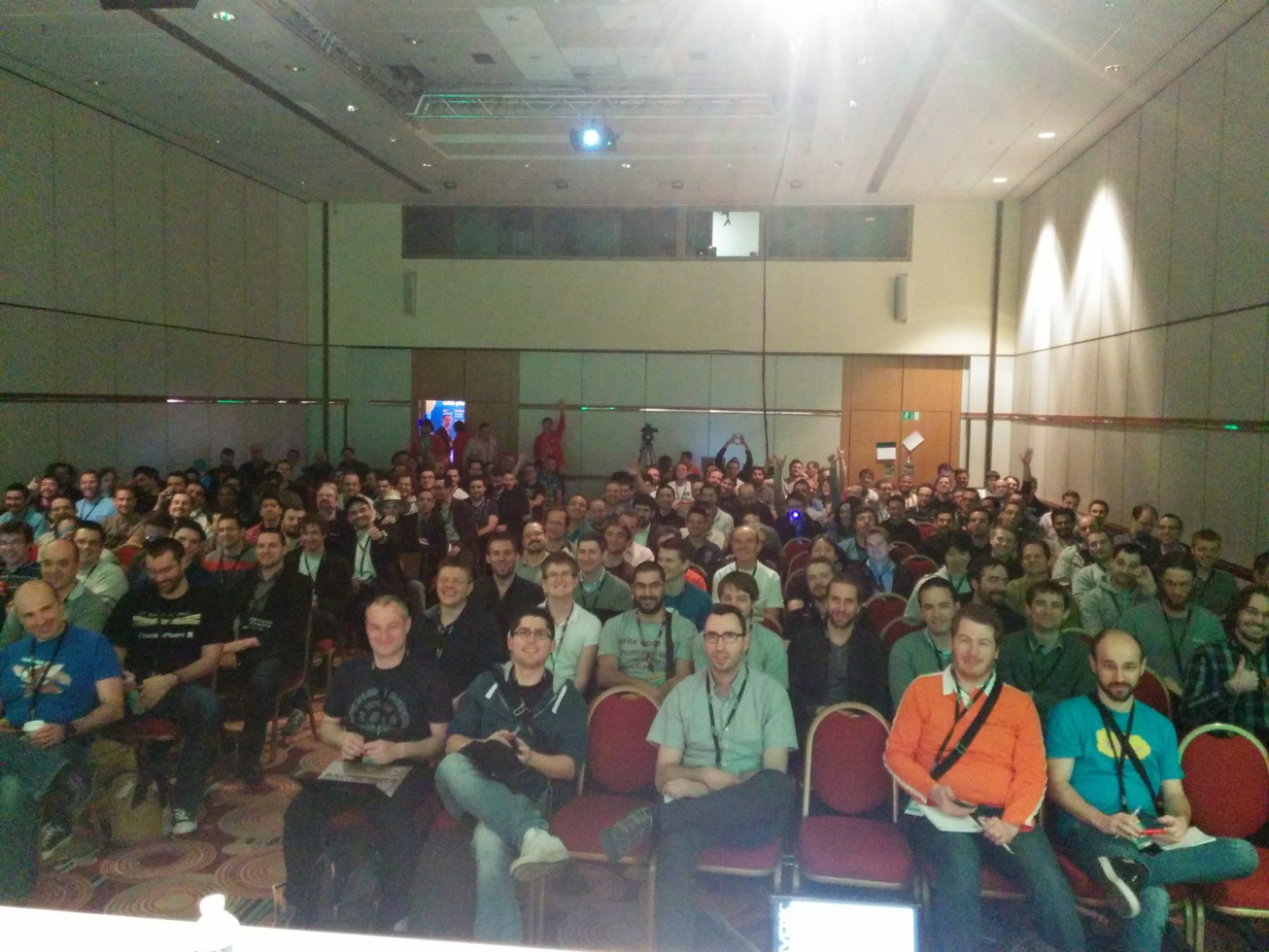I held a session on IntelliJ Tips and Tricks at Devoxx France yesterday. It was pretty successful I’d say,
apart from the minor
little detail of my laptop falling from a height of about one meter onto the floor, while open, 5 minutes before the session was about to start.
But it survived, and all went well.

I submitted a few talks via their call for papers, and two got accepted, one of them though was a given since we were allowed to give one vendor session as part of the sponsorship package.
The vendor session was “42 IntelliJ Tips and Tricks in 45 minutes”. The room was pretty much full. I don’t have exact numbers but counting the chairs, roughly I’d say we had about 240 people in the room. And pending final results, the feedback has been great.
We weren’t the only company doing vendor sessions. Zeroturnaround had a pretty full room for their talk on class loaders, which fits right in with their area of expertise, and I’m sure other vendors were also successful.
What did Devoxx France do right?
I have to praise Devoxx France and the Program Committee for how they handled these sessions. From what I was told,these vendor sessions were evaluated much the same way all other talks were and they worked towards providing content that would be suitable for attendees.
What they also did right was:
- Not explicitly mark them as vendor sessions
- Not assign them to a specific vendor track
- Not have them held during lunch time
- Not allocate ridiculously low time slot to them such as 15 minutes.
And why could they do all that? Because they judged the session like any other session, and they didn’t immediately treat it as a 2nd class marketing vendor session.
This isn’t the first time I’ve given a tips and tricks talk at a conference. In fact a few years ago, I did an impromptu
talk at NDC on ReSharper. It was not on the schedule and I just told people at the booth to come by.
Over 150 people turned up. And it was held in parallel to some great talks.
Point being, people come to these talks because they feel it provides value to them, independently of whether the contents might be around a commercial or free/OSS tool.
However, these types of sessions would most likely not be accepted if submitted to a conference. Why? Because they are considered “vendor oriented sessions”. And that’s usually reinforced if the topic involves a non-free/non-OSS product.
What can conference organizers and vendors learn?
We sponsor a lot of conferences and events a year. Some of them provide what they call “vendor slots” much like Devoxx France, and are very much completely the opposite of what Devoxx France is. It’s often a 15 minute slot and scheduled at the not most convenient time-slot we could say, such as during lunch. In essence, one often feels that the session is already doomed for failure. I mean face it, who’s going to go to a “vendor” session during lunch for 15 minutes? What could you possibly pick up?
I feel that it’s time that conference organizers and committees stop focusing so much on whether a specific topic is by a vendor and focus on whether that topic
provides value. Maybe it’s time they should stop automatically discarding any content that is not specifically about an OSS/Free tool.
This isn’t about giving vendors a free marketing slot. It’s about dropping prejudices and working together, organizers
and vendors to provide better value for all, and most importantly for you, the attendee.
It’s somewhat ironic that in the Microsoft space, event organizers often say that they don’t like to promote “vendors” at their events. Yet all events are promoting
the single biggest vendor of them all, aren’t they?
Of course, I could be wrong. You tell me.